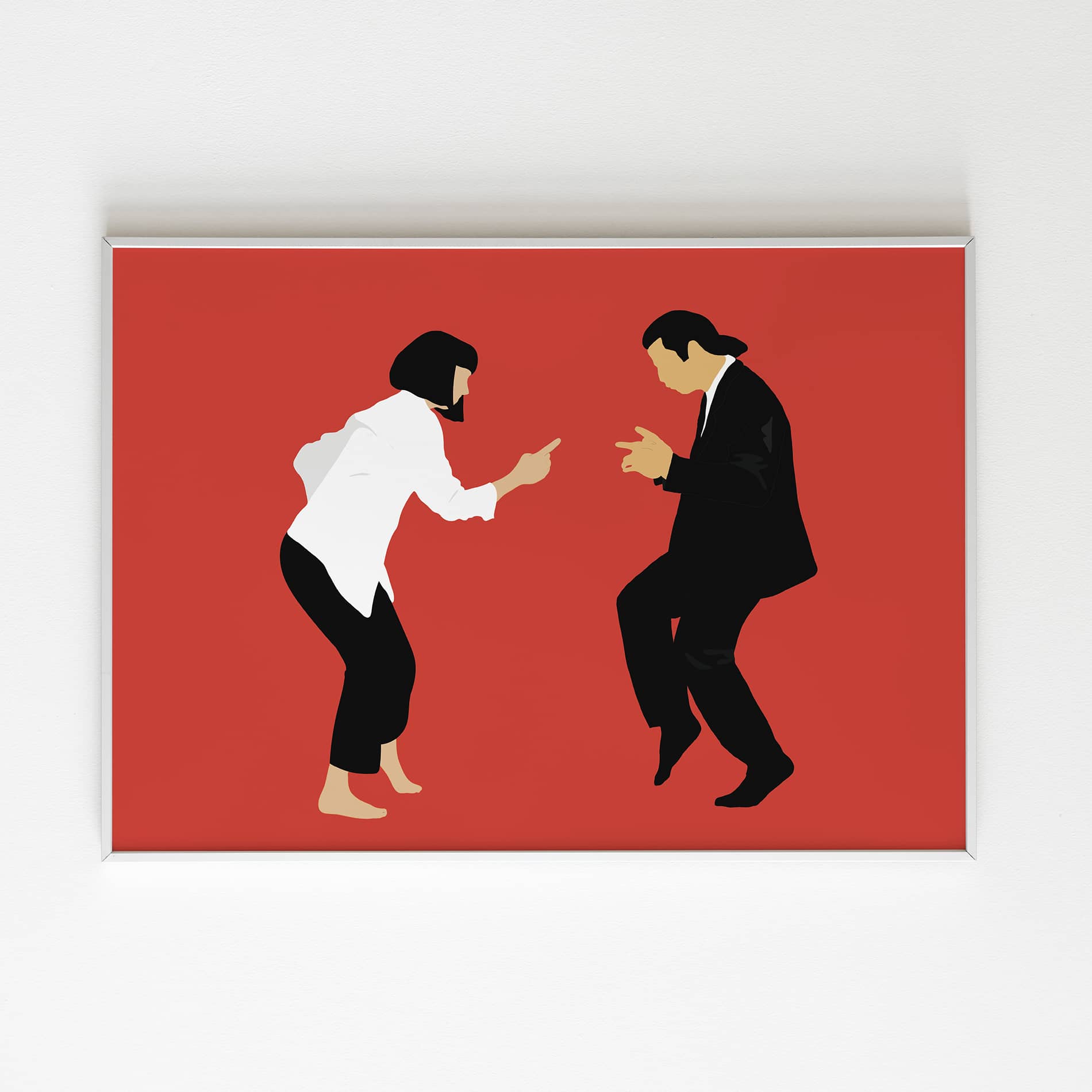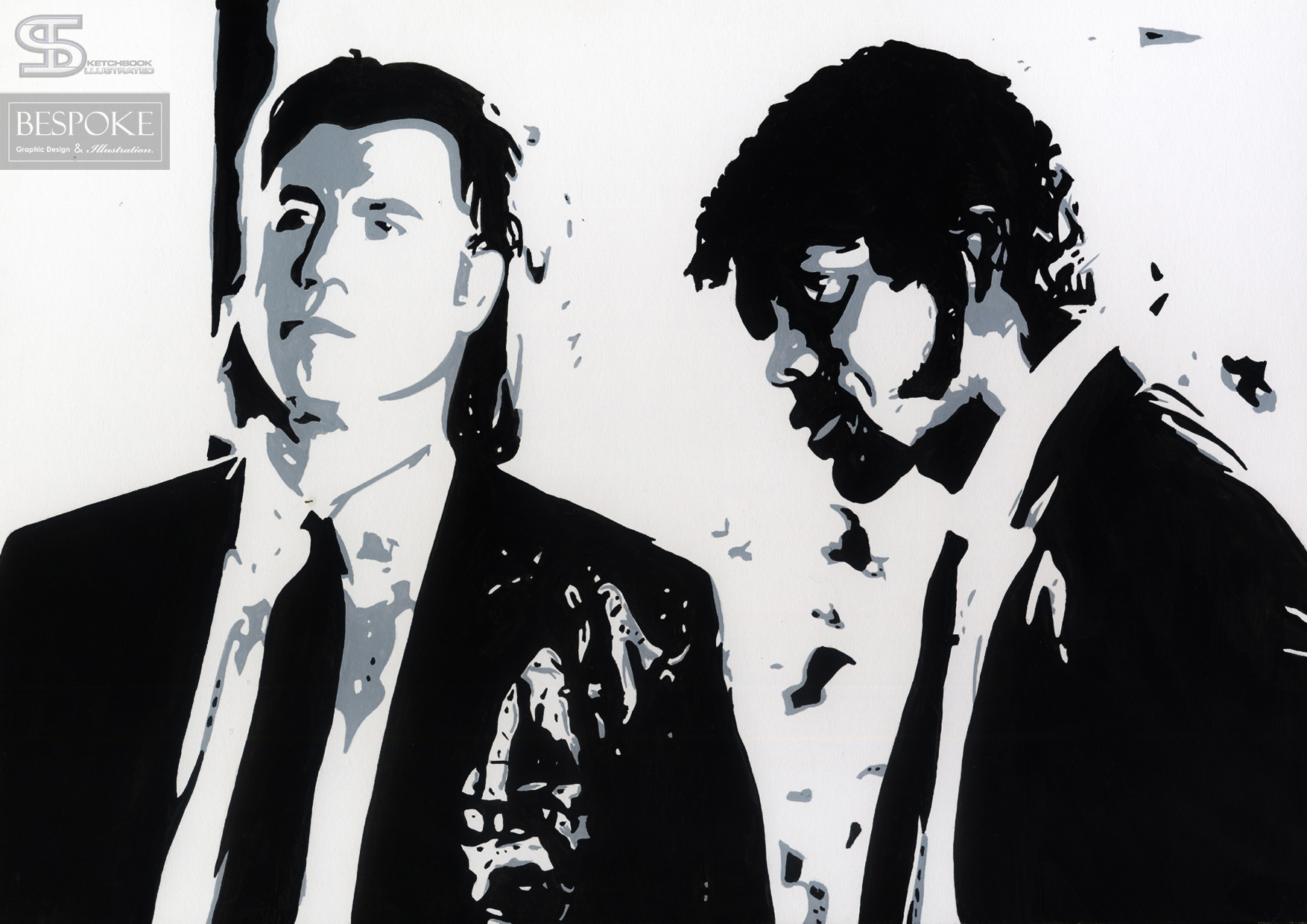Pulp Fiction Synopsis: A Deep Dive Into Quentin Tarantino's Masterpiece
When it comes to iconic movies, Pulp Fiction is a name that instantly lights up the room. Released in 1994, Quentin Tarantino's brainchild turned the world of cinema on its head with its unconventional storytelling and unforgettable characters. This film isn't just a movie—it's a cultural phenomenon that continues to inspire filmmakers, fans, and critics alike. So, buckle up, because we're about to take a wild ride through the twisted world of Pulp Fiction.
From its groundbreaking nonlinear narrative to its sharp dialogue, Pulp Fiction set a new standard for independent filmmaking. It's not just a story—it's an experience. Tarantino masterfully weaves together multiple storylines, creating a tapestry of crime, humor, and raw emotion that keeps you hooked from start to finish. And let's not forget the killer soundtrack that perfectly complements the film's chaotic yet stylish vibe.
But what exactly makes Pulp Fiction so special? Is it the unforgettable characters like Jules and Vincent, or the iconic scenes that have become part of pop culture? Or is it the way Tarantino plays with time, making you question what's real and what's just a clever twist? Whatever it is, one thing's for sure—this movie changed the game. So, let's dive in and explore why Pulp Fiction remains one of the most talked-about films of all time.
- How Much Is Jonathan Majors Worth Unpacking The Stars Rising Net Worth
- Alanna Masterson Relationship The Inside Scoop On Love Life And Everything In Between
Understanding Pulp Fiction's Synopsis
Breaking Down the Structure
Pulp Fiction's synopsis might seem like a jigsaw puzzle at first glance, but once you piece it together, it's pure brilliance. The film follows three interconnected stories that are told out of chronological order, creating a sense of mystery and intrigue. This nonlinear structure is one of the film's defining features, forcing viewers to pay attention and piece together the timeline themselves. It's like solving a puzzle while watching a movie, and trust me, it's worth every second.
The first storyline revolves around Vincent Vega (John Travolta) and Jules Winnfield (Samuel L. Jackson), two hitmen working for crime boss Marsellus Wallace. Their mission? To retrieve a mysterious briefcase that seems to hold extraordinary power. Along the way, they encounter a series of bizarre and dangerous situations, showcasing Tarantino's knack for blending tension and humor.
The Characters That Define the Story
Each character in Pulp Fiction is a masterpiece in its own right. Vincent Vega, with his cool demeanor and love for foot massages, is the epitome of a classic antihero. Then there's Jules, whose philosophical musings about life and death add depth to the story. Mia Wallace (Uma Thurman), Marsellus' wife, brings a touch of glamour and danger to the mix, while Butch Coolidge (Bruce Willis) adds a layer of old-school charm and unpredictability.
- What Is Data Visualization In Iot Unlocking The Power Of Connected Insights
- Mr Bean Net Worth The Hidden Fortune Behind The Silly Face
Let's not forget the quirky supporting characters like Marvin, the unlucky guy who gets shot in the car, or the hilarious diner duo, Pumpkin and Honey Bunny. Each character plays a crucial role in the film's overall narrative, contributing to its chaotic yet cohesive feel. It's like a symphony of personalities, each note perfectly timed to create a masterpiece.
Key Themes in Pulp Fiction Synopsis
The Dance Between Violence and Humor
One of the most striking aspects of Pulp Fiction is its ability to balance intense violence with moments of pure comedy. Tarantino has a way of making even the darkest scenes feel lighter, thanks to his sharp wit and clever dialogue. Whether it's Vincent and Jules discussing the merits of a Royale with Cheese or Butch's unexpected escape from certain death, the film keeps you laughing even when things get serious.
This contrast between violence and humor is a recurring theme throughout the movie, reflecting the unpredictable nature of life itself. It's a reminder that even in the darkest moments, there's always room for a little laughter. And isn't that what makes Pulp Fiction so relatable and timeless?
The Power of Redemption and Choice
Another central theme in Pulp Fiction's synopsis is the idea of redemption and choice. Jules' decision to walk away from a life of crime after a near-death experience is a powerful moment that resonates with audiences. It raises questions about fate, free will, and the possibility of change, even in the most unlikely circumstances.
Similarly, Butch's choice to save Marcellus instead of leaving him to die is a testament to the film's exploration of morality and human connection. These moments of redemption and moral ambiguity add depth to the story, making it more than just a crime thriller. It's a meditation on the complexities of human nature and the choices we make.
Unpacking the Iconic Scenes
The Foot Massage That Changed Everything
Who could forget the infamous foot massage scene? Vincent's decision to give Mia Wallace a foot massage sets off a chain of events that ultimately leads to disaster. It's a perfect example of how small choices can have huge consequences, a theme that runs throughout the film. The tension in this scene is palpable, with every word and gesture carrying weight and meaning.
This scene also highlights the film's exploration of relationships and power dynamics. Vincent's attraction to Mia and her flirtatious behavior create a complex web of emotions that leave viewers on edge. It's a masterclass in storytelling, proving that sometimes the simplest actions can have the biggest impact.
The Gold Watch and the Meaning of Legacy
Butch's gold watch is more than just a prop—it's a symbol of family, legacy, and the weight of the past. Passed down from father to son, the watch represents the connection between generations and the responsibilities that come with it. When Butch retrieves the watch from his apartment, it becomes a pivotal moment in the film, showcasing his determination and resourcefulness.
This scene also highlights the film's exploration of identity and self-discovery. Butch's journey from a washed-up boxer to a hero willing to risk his life for others is a powerful arc that resonates with audiences. It's a reminder that sometimes, our most cherished possessions can reveal more about us than we realize.
Behind the Scenes: The Making of Pulp Fiction
Quentin Tarantino's Vision
Pulp Fiction wouldn't be the masterpiece it is without Quentin Tarantino's visionary direction. From the script's sharp dialogue to the film's innovative structure, Tarantino's influence is felt in every frame. His love for classic films and pulp fiction novels shines through in every scene, creating a unique blend of nostalgia and modernity.
But Tarantino's brilliance isn't just in his storytelling—it's in his ability to bring out the best in his cast. Working with actors like John Travolta, Samuel L. Jackson, and Uma Thurman, he created characters that have become legends in their own right. It's a testament to his talent as a director and his passion for the craft.
The Cast That Made It Happen
The cast of Pulp Fiction is a dream team of talent and charisma. John Travolta's portrayal of Vincent Vega brought the character to life with his smooth demeanor and dry humor. Samuel L. Jackson's Jules is a force of nature, delivering lines with a mix of menace and wit that only he can pull off. Uma Thurman's Mia Wallace is a vision of elegance and danger, while Bruce Willis' Butch Coolidge adds a touch of old-school charm to the mix.
Each actor brought something unique to the table, contributing to the film's overall success. Their performances are a testament to the power of collaboration and the magic that happens when talented individuals come together to create something extraordinary.
Impact and Legacy of Pulp Fiction
Changing the Game in Filmmaking
Pulp Fiction's impact on the film industry cannot be overstated. Its nonlinear narrative structure inspired a generation of filmmakers to think outside the box and experiment with new storytelling techniques. It proved that independent films could compete with big-budget blockbusters, paving the way for a new era of cinematic innovation.
The film's success also helped to launch the careers of its cast and crew, cementing their places in Hollywood history. It's a reminder that sometimes, the most unexpected films can have the biggest impact, changing the way we think about movies and the stories they tell.
Why Pulp Fiction Still Matters Today
More than 25 years after its release, Pulp Fiction remains as relevant and influential as ever. Its exploration of themes like violence, redemption, and morality continues to resonate with audiences, proving that great stories transcend time and place. The film's sharp dialogue and iconic scenes have become part of pop culture, influencing everything from TV shows to music videos.
But perhaps the most important reason why Pulp Fiction still matters today is its ability to connect with people on a personal level. Whether you're a fan of crime thrillers or just appreciate a well-told story, this film has something for everyone. It's a testament to the power of cinema to bring people together and create shared experiences that last a lifetime.
Final Thoughts: Why Pulp Fiction Deserves Your Attention
In conclusion, Pulp Fiction is more than just a movie—it's a cultural phenomenon that continues to inspire and entertain audiences around the world. Its groundbreaking narrative structure, unforgettable characters, and sharp dialogue have set a new standard for filmmaking, influencing countless directors and writers in the years since its release.
So, if you haven't seen Pulp Fiction yet, what are you waiting for? Dive into this cinematic masterpiece and experience the magic for yourself. And if you're already a fan, take a moment to appreciate the film's lasting impact and the way it continues to shape the world of cinema today.
Feel free to share your thoughts and favorite scenes in the comments below. And don't forget to check out our other articles for more insights into the world of film and beyond. After all, life's too short to waste on bad movies!
Table of Contents
- Understanding Pulp Fiction's Synopsis
- Breaking Down the Structure
- The Characters That Define the Story
- Key Themes in Pulp Fiction Synopsis
- The Dance Between Violence and Humor
- The Power of Redemption and Choice
- Unpacking the Iconic Scenes
- The Foot Massage That Changed Everything
- The Gold Watch and the Meaning of Legacy
- Behind the Scenes: The Making of Pulp Fiction
- Quentin Tarantino's Vision
- The Cast That Made It Happen
- Impact and Legacy of Pulp Fiction
- Changing the Game in Filmmaking
- Why Pulp Fiction Still Matters Today
- Samantha Middleton Husband The Untold Story You Wonrsquot Believe
- What Is Szas Real Name Discover The Story Behind The Rampb Sensation

Pulp Fiction

Pulp Fiction Painting Sketchbook Illustrated

Pulp Fiction 1994, directed by Quentin Tarantino Film review